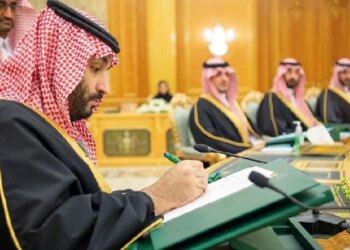Select Language:
Saudi Arabia’s Bid for the 2038 World Cup: Context and Controversies
In a move that has sparked significant debate and concern, FIFA has officially confirmed Saudi Arabia’s bid to host the 2038 FIFA World Cup. This decision follows the announcement of a joint bid by Spain, Portugal, and Morocco to host the 2030 World Cup. While these developments are monumental in the realm of international football, they are not without a tangle of controversies and ethical dilemmas.
The Process Behind the Bidding
FIFA’s Principle of Confederation Rotation
FIFA operates under a principle of confederation rotation, which aims to ensure that the World Cup is hosted in various regions of the world over time. However, the organization has faced criticism for seemingly circumventing this principle. For the 2030 World Cup, FIFA included Uruguay, Argentina, and Paraguay as hosts to commemorate the 100-year anniversary of the inaugural tournament held in Uruguay. This decision raises questions about the exclusion of South American bids for the 2034 event, and subsequently the tight time frame imposed on other applicants for the 2038 World Cup.
A Tight Timeline for Bids
The deadline set by FIFA for bids for the 2034 World Cup appears to have been strategically established. By only allowing aspirants from Asia and Oceania—and placing a narrow window for submissions—FIFA’s plan effectively cleared the path for Saudi Arabia to claim its ambition of hosting the tournament. This sequence of events coincides with FIFA’s announcement of a multi-year global partnership with Saudi Aramco, the state-owned oil giant, creating an intricate web of political and economic interests intertwined with the World Cup hosting rights.
Human Rights Concerns
The Striking Criticism from Activist Groups
Human rights groups have been vocal in their criticism regarding Saudi Arabia’s bid, expressing grave concerns about the nation’s record concerning migrant workers, women’s rights, and the treatment of LGBTQ individuals. Saudi Arabia’s human rights context has come under scrutiny, which has not deterred FIFA from supporting its bid. Notably, FIFA published a "Bid Evaluation Report" granting the Saudi bid an impressive score of 4.2 out of 5—the highest in the history of World Cup bid evaluations.
A Flawed Evaluation Process
According to FIFA, the inclusion of human rights considerations in its evaluation is intended to assess how effectively bidders plan to mitigate human rights risks associated with hosting a tournament. Critics, including Amnesty International’s Head of Labour Rights and Sport, Steve Cockburn, have dismissed FIFA’s report as a "whitewash" of Saudi Arabia’s troubling human rights history. Concerns have been raised regarding the lack of binding commitments to safeguard the rights of workers, protect residents from eviction, and prevent the imprisonment of activists during the World Cup period.
Current State of Human Rights in Saudi Arabia
Ratings and Indices
As highlighted in various human rights indices, Saudi Arabia typically ranks poorly in terms of governance and human rights conditions. This consistent placement near the bottom of international rankings casts a long shadow over its candidacy for hosting a globally celebrated event like the World Cup. The growing visibility and attention on these issues compel stakeholders, including FIFA, to confront the realities of human rights conditions in countries hosting major international events.
The Broader Implications
The implications of choosing Saudi Arabia as a host for such a significant global event transcends mere logistics and finances; it also reflects on the moral responsibilities of international organizations like FIFA. The ripple effects of hosting the World Cup—economic, cultural, and social—will undoubtedly raise critical questions about the ethical implications of such partnerships.
With the decision regarding the World Cup significantly influenced by economic deals and geopolitical considerations, the eyes of the world will be watching how FIFA navigates this complex terrain as Saudi Arabia moves ahead with its preparations. The unfolding situation underscores the urgent need for a more robust discussion on the intersectionality of sports, human rights, and corporate responsibility in the global arena.







